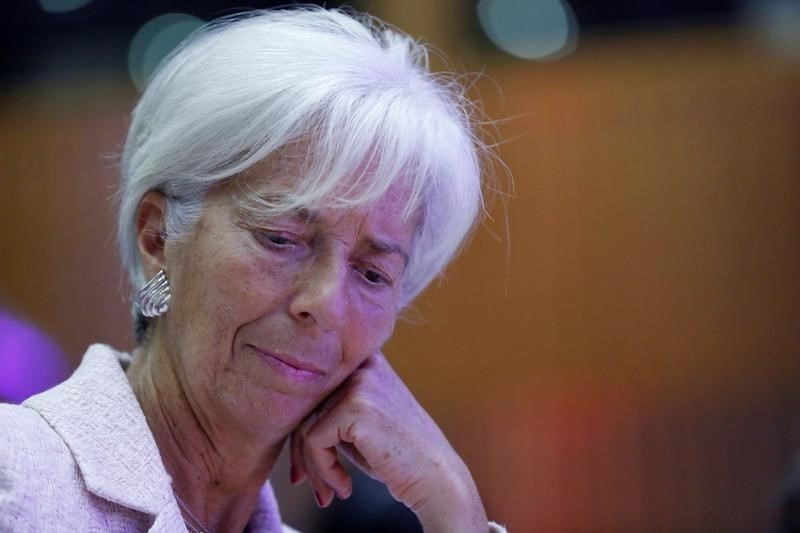By Chine Labbé
PARIS (Reuters) - France's highest appeals court ruled on Friday that International Monetary Fund chief Christine Lagarde must stand trial for her role in a 400 million euros ($440 million) state payout in 2008 to businessman Bernard Tapie.
She was French finance minister at the time when she signed off on the decision to seek a extremely rare out-of-court settlement in a dispute between the state and Tapie, costing tax-payers dearly.
The court rejected her appeal against a judge's order in December for her to stand trial at the Cour de Justice de la Republique, a special court that tries ministers for crimes in office.
The trial will be only be the fifth in the history of the tribunal, which is made up of three judges and six lawmakers from both the lower and upper houses of parliament.
Her case may go to trial before the before the end of the year if a date can be found that suits all of the judges and lawmakers, a judicial source said.
Her lawyer Patrick Maisonneuve expressed regret over the decision and said he was convinced that the trial would show she was innocent.
IMF spokesman Gerry Rice said that its executive board had been briefed on the matter and continued to have confidence in Lagarde's capacity to carry out her functions.
Lagarde is accused of negligence with the result that public funds were misused by improperly approving the decision to allow an out-of-court arbitration in the dispute with Tapie, a supporter of conservative former president Nicolas Sarkozy.
The arbitration judges later ruled in Tapie's favour and ordered the state payout to him, but appeals courts have since thrown out that settlement decision.
A Paris appeals court has ordered Tapie to reimburse the state, but the businessman has lodged an appeal, which is still pending.
The case goes back to when Tapie sued the state for compensation after selling his stake in sports company Adidas (DE:ADSGN) to Credit Lyonnais in 1993. He claimed the bank had defrauded him after it later resold his stake for a much higher sum.
UNDER PRESSURE
The judge seeking the trial had argued in December that Lagarde's decision to allow an out-of-court settlement amounted to more than an unfortunate case of carelessness, a judicial source said.
"The multiple oversights by a minister experienced with financial disputes and arbitration procedures are difficult to explain unless it was to impose a certain outcome in advance," according to the judge's argument, the source said.
Despite the case looming over her, Lagarde was appointed in January for a second five-year term as managing director of the International Monetary Fund.
Lagarde has had a high-flying career, first as a top corporate lawyer in the United States, then as a cabinet minister and most recently as managing director at the IMF.
At the Fund, she has won praise for persuading the U.S. Congress to approve a landmark reform programme that shifted more voting power to China and other key emerging market countries and has generally been considered a skilful negotiator.
As France's finance minister from 2007 to 2011 Lagarde played a key role in Europe's response to the global financial crisis.
She joined the international law firm Baker & McKenzie in Paris aged 25 after completing a master's degree in English and labour law, and quickly rose to the top of the Chicago-based firm before entering politics.
Born in Paris and raised in the northern port city of Le Havre, Lagarde is a vocal proponent of women as senior executives, once saying dryly that if Lehman Brothers had been Lehman Sisters, it might have survived.
